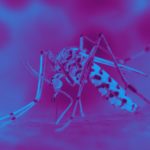Link to Pubmed [PMID] – 24719471
J. Infect. Dis. 2014 Oct;210(7):1115-22
BACKGROUND: Acquired immune responses to malaria have widely been perceived to be short-lived, with previously immune individuals losing immunity when they move from malaria-endemic areas. However long-lived Plasmodium falciparum-specific antibody responses lasting for an individual’s lifetime are frequently observed.
METHODS: We fit mathematical models of the dynamics of antibody titers to P. falciparum antigens from longitudinal cohort studies of African children to estimate the half-lives of circulating immunoglobulin G (IgG) antibodies and IgG antibody-secreting cells (ASCs).
RESULTS: Comparison of antibody responses in the younger Ghanaian cohort and the older Gambian cohort suggests that young children are less able to generate the long-lived ASCs necessary to maintain the circulating antibodies that may provide protection against reinfection. Antibody responses in African children can be described by a model 15 including both short-lived ASCs (half-life range, 2-10 days), which are responsible for boosting antibody titers following infection, and long-lived ASCs (half-life range, 3-9 years), which are responsible for maintaining sustained humoral responses.
CONCLUSIONS: The rapid decay of antibodies following exposure to malaria and the maintenance of sustained antibody responses can be explained in terms of populations of short-lived and long-lived ASCs.

